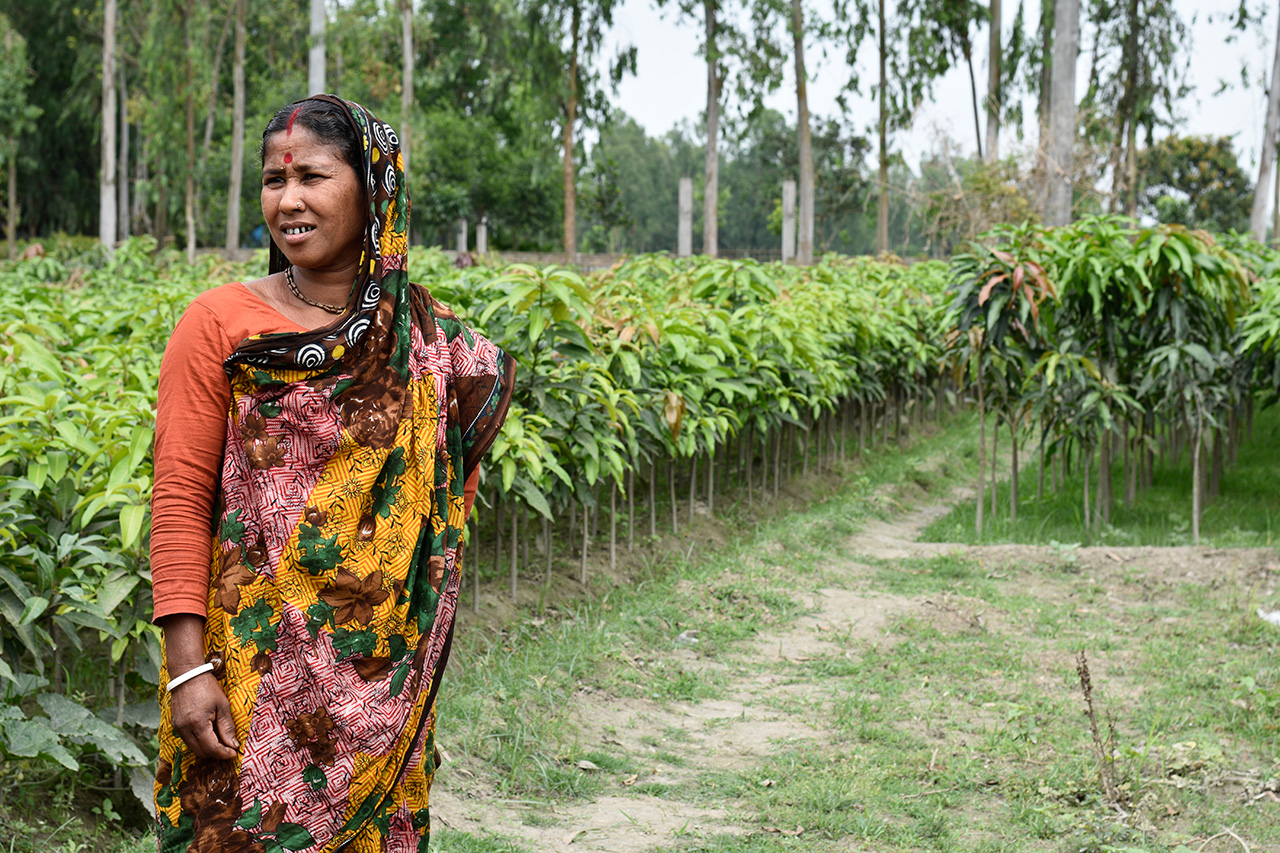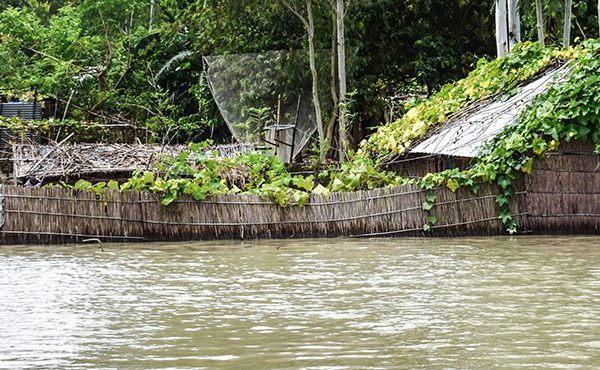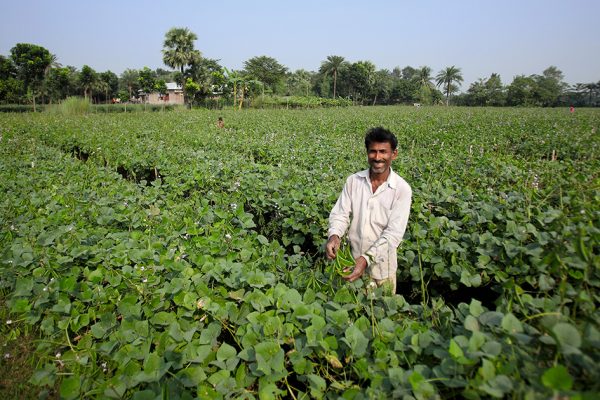A green step out of poverty
Reading Time: 3 minutes
Can we tackle extreme poverty and protect the environment at the same time? Learn how this programme is doing both.
Bangladesh sits in a low-lying region at the intersections of the Meghna, Brahmaputra and Ganges rivers, making it one of the most vulnerable countries to the impacts of climate change. We set out for Kurigram, Rangpur, a northern region of Bangladesh, where climate change has shuffled seasonal patterns in one of the country’s poorest districts. It is also where BRAC’s ultra-poor graduation programme has been present since 2002.
The programme aims to enable ultra-poor households to achieve key milestones towards sustainable livelihoods and socio-economic resilience. One key element of the programme is enterprise development training. Each participant receives a high-value investment or loan and associated technical training for income generation, based on their preferred enterprise. To date, the programme has served 1.9 million ultra-poor households in Bangladesh. We set out to interview two of these clients.
Krishna wakes up at 7 in the morning every day and starts working at Shibu nursery. Named after her youngest son, Krishna founded the nursery after enrolling in the ultra-poor graduation programme in 2008.

“The larger return and a sustainable income we would get from the nursery was attractive to me.”- Krishna
Krishna typically sells her produce in wholesale to buyers from the nearby town. With the income she has earned, she was able to lease more land, allowing her to grow the nursery six times the original plot and employ five part-time workers.
Haowa Nur is another participant of the nursery enterprise programme. Having enrolled in 2015, Haowa is a relative newcomer in this field. Nonetheless, she has credited the nursery for providing the income needed to send her two kids to school and build a house for her family.

“Before, I used to work in other people’s homes to earn some money. I am my own boss now, thanks to this space of greenery that I grew myself.” – Haowa Nur, a graduate of the ultra-poor programme
The effect the programme had on the household was immediately notable – food security, clean drinking water, and dignified housing conditions. However, we were more fascinated by another impact that was hidden in plain sight, but no less notable than the others. The positive environmental externalities that rippled from the nursery programme were no small coincidences.
The BRAC Nursery enterprise highlights the necessity of planting trees at a time when the total forest coverage in Bangladesh has shrunk to less than 10%. Alongside generating income and employment, the enterprise teaches participants to cultivate otherwise barren lands into sustainable, green livelihood that they can call their own. It is a small step towards restoring ecological balance, but with 12.9% of the population in Bangladesh living below the global poverty line, it is hard not to think about the impact such initiatives could create.
Walking through the narrow paths, Krishna proudly presented her mango trees, bayleaf crops, and her recently uprooted pumpkin patch. During a three-day training, Krishna and other participants who chose the nursery track were taught climate change-resistant agricultural practices which could lead to higher productivity. For example, participants were taught that mangoes could provide a flood-safe harvest, while lychees were a more risky choice.
Although the nursery enterprise provides an integrated approach to alleviate poverty while mitigating climate change, Haowa and Krishna are a small but growing cohort of women that chose the nursery enterprise. Because the ultra-poor Graduation programme provides participants the option to choose based on their preference and abilities, many opt for acquiring livestock, as it requires less time commitment and future capital. This disparity between the participants’ choice of enterprise is evident of how difficult it is to manage a sustainable livelihood with the environment in mind.
Despite this, the success of the nurseries and the impact on the community speaks largely about the positives of investing more resources into promoting green entrepreneurship and addressing the associated risks. Abdus Salim, senior regional manager of Rangpur district, has taken a note of this. “In North Bengal, we are actively promoting the programme’s participants to choose the nursery enterprise option as there is greater long-term return on investment, increases in overall resilience, and it also helps the environment”.
After speaking to Haowa and Krishna, it becomes evident that, although they may not necessarily consider the full scope of their work’s environmental impact in the long run, supporting people living in ultra poverty can simultaneously slow down environmental degradation – one of the biggest challenges of our time.
Faiza Haq is an international affairs specialist and Audrey Covey is a communications specialist at BRAC.





